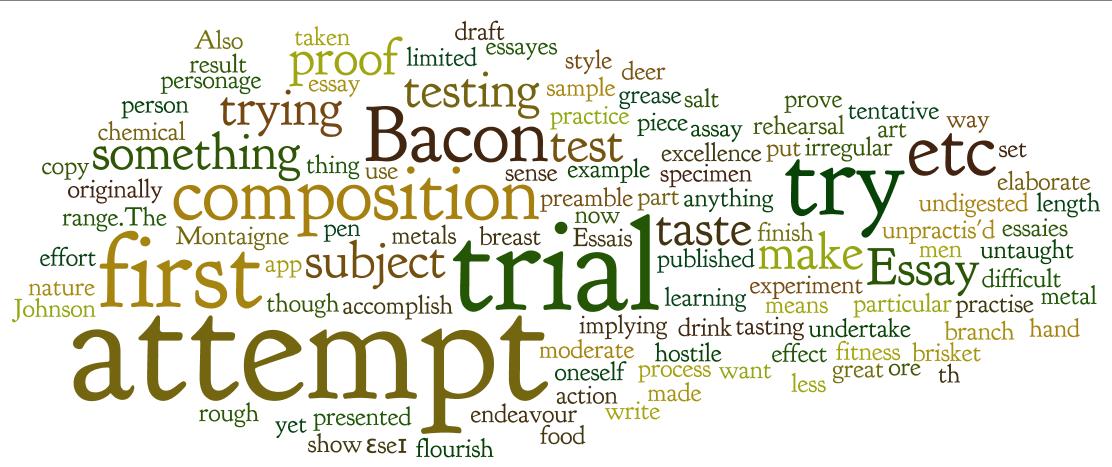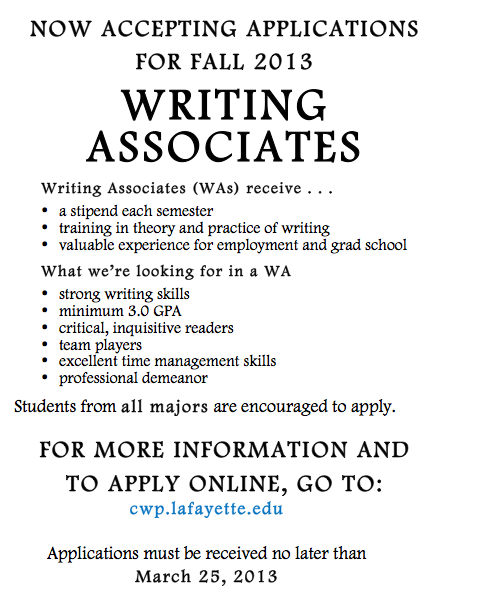Faculty, did you know that
• all writers—both experienced and novice—benefit from having an informed, curious, engaged reader of their texts.
• any instructor can request a Writing Associate, even for courses that are not designated writing-intensive. Over the past year, WAs have assisted professors and their students in upper-level chemical engineering, economics, government & law, international affairs, and mathematics courses, just to name a few!
• students have lots of very thoughtful questions about academic writing—questions they may be more willing to ask fellow students than their professors.
• working with a Writing Associate does not lock you in to any set number of assignments for your course. WAs are expected to hold four conferences with your students, and conference should be spread out over the course of the semester. But you decide when and where those conference will be most helpful.
• WAs can meet with your students at any stage of their writing processes, even while the student is still formulating an idea. By meeting with students before there’s an actual draft, WAs can often steer students away from projects that are unlikely to be successful and toward projects that better meet your expectations.
• contrary to popular belief, WAs can and do work with students on grammar and proofreading—along with the higher order concerns that make up the bulk of their conferences.
• WAs can also work with students on projects other than papers, including web pages and blog posts, PowerPoint presentations, podcasts, posters, etc.
Want to learn more? The College Writing Program cordially invites faculty to join us for lunch on Friday, November 22 at 12:15 in the Watt College Writing Room (Pardee 319). Bianca Falbo (CWP Director) and Christian Tatu (CWP Coordinator) will be on hand, along with our current senior WAs to discuss “What a WA Can Do for You.”
If you’re interested in joining us, please send an email to Christian at tatuj@lafayette.edu. When responding, please feel free to include any questions you might like to have answered by the College Writing Program staff about working with a WA, or about teaching and learning with writing in general.


